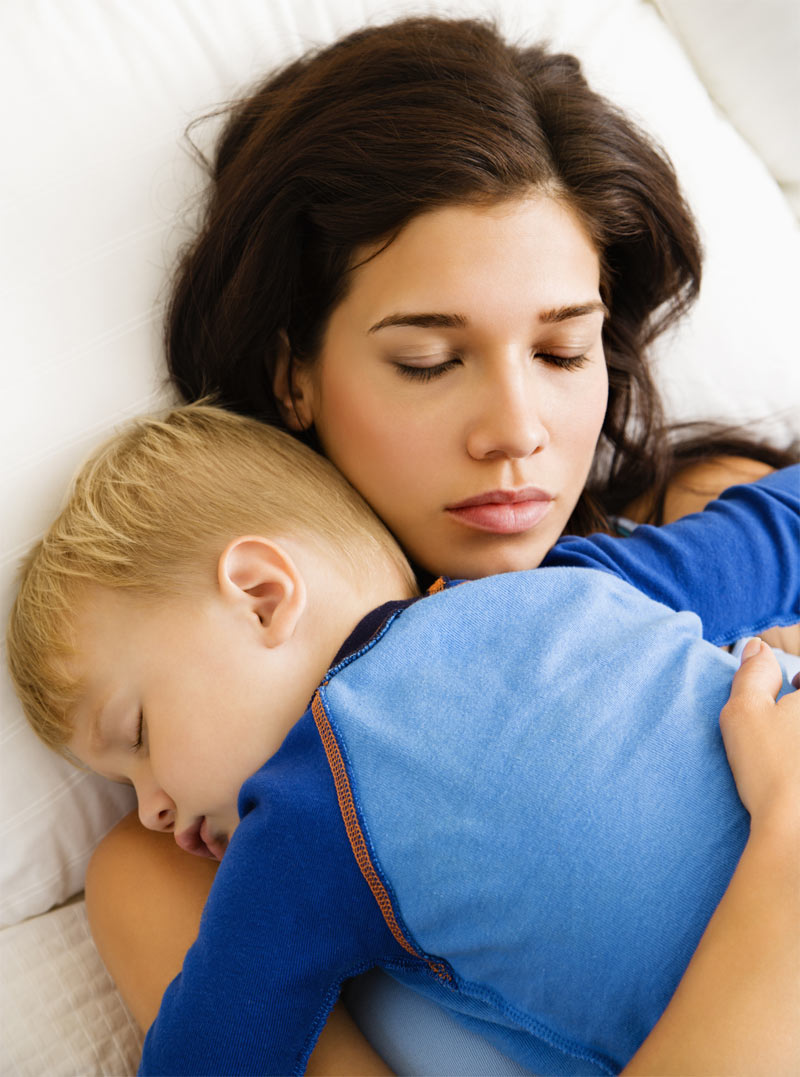It's OK to Share a Bed with Your Toddler, Study Finds

Sharing a bed with your child has gotten a bad rap, but new research shows that after infancy, it doesn't lead to negative outcomes.
Sleeping with your young child, also called bed-sharing or co-sleeping, is prevalent in many countries and cultures, but remains relatively uncommon in the United States. There is no consensus among parenting experts about bed-sharing: About a third of parenting books endorse the act, about a third dismiss it, and the remainder don't take a stance.
"There are very few studies that have looked at impacts of toddler bed-sharing, but it is a topic I am often asked about by parents and health professionals," said Helen Ball, a researcher at Durham University in the United Kingdom who wasn't involved in the study. "The study is helpful in debunking the myth that bed-sharing is associated with negative developmental outcomes."
Sleeping styles
The current study followed a sample of 944 low-income parent-toddler pairs, beginning when the toddler was 1. The participants were enrolled in to the Early Head Start Research and Evaluation Study and were asked at years 1, 2 and 3 about the child's sleeping arrangements. The researchers determined the child's behavioral, social and cognitive outcomes at 5 years old, as well as the maternal parenting style.
The results showed that several negative outcomes were associated with bed-sharing, including decreased social skills and cognitive outcomes, though these associations disappeared when other factors, including socioeconomic status, maternal education, parenting style and ethnicity, were accounted for. In the end, bed-sharing could be ruled out as a cause of any developmental problems observed.
"After statistical adjustment for socio-demographic characteristics, there were no behavioral or cognitive differences at age 5 between children who bed-shared with a parent during their toddler years and those who did not," study researcher Lauren Hale, of Stony Brook University, told LiveScience in an email. "Since we did not find a difference, this study suggests that bed-sharing patterns are not contributing to divergent developmental trajectories."
Sign up for the Live Science daily newsletter now
Get the world’s most fascinating discoveries delivered straight to your inbox.
To share or not to share
The American Association of Pediatrics recommends against bed-sharing during infancy because studies have shown that it increases the risk of sudden infant death syndrome (SIDS) under certain conditions. "Our finding is not in conflict with this recommendation, because our study looked at bed-sharing at ages 1, 2 and 3 (past the period of infancy)," Hale said.
There are pros and cons to bed-sharing. Many proponents argue that it facilitates breast-feeding and encourages bonding between mother and child, while others say that bed-sharing adds to sleep problems in children and causes distress among parents.
"As an anthropologist I find it rather strange that anyone might imagine sleeping next to the safety and security of a parent could harm a toddler — or have negative consequences for behavioral or social development," Ball wrote LiveScience in an email. "So many bedtime battles and children's 'sleep problems' arise due to the mismatch between children's instinctive sleep needs, and parental efforts to conform to 21st century sleep expectations."
You can follow LiveScience staff writer Jennifer Welsh on Twitter @microbelover. Follow LiveScience for the latest in science news and discoveries on Twitter @livescience and on Facebook.
Jennifer Welsh is a Connecticut-based science writer and editor and a regular contributor to Live Science. She also has several years of bench work in cancer research and anti-viral drug discovery under her belt. She has previously written for Science News, VerywellHealth, The Scientist, Discover Magazine, WIRED Science, and Business Insider.










